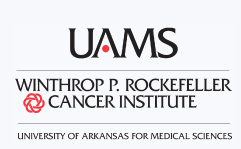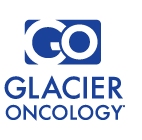S0115, High-Dose Melphalan and Autologous Peripheral Stem Cell Transplantation in Treating Patients With Multiple Myeloma or Primary Systemic Amyloidosis
| Status: | Completed |
|---|---|
| Conditions: | Blood Cancer, Hematology, Hematology, Hematology |
| Therapuetic Areas: | Hematology, Oncology |
| Healthy: | No |
| Age Range: | 18 - 120 |
| Updated: | 8/11/2018 |
| Start Date: | January 2004 |
| End Date: | November 2015 |
S0115, A Phase II Trial Evaluating Modified High Dose Melphalan (100 mg/m) And Autologous Peripheral Blood Stem Cell Supported Transplant (SCT) For High Risk Patients With Multiple Myeloma And/Or Light Chain Amyloidosis (AL Amyloidosis) (A BMT Study)
RATIONALE: Drugs used in chemotherapy such as melphalan work in different ways to stop cancer
cells from dividing so they stop growing or die. Combining chemotherapy with donor peripheral
stem cell transplantation may allow the doctor to give higher doses of chemotherapy drugs and
kill more cancer cells.
PURPOSE: This phase II trial is studying how well giving melphalan together with autologous
stem cell transplantation works in treating patients with multiple myeloma or primary
systemic amyloidosis.
cells from dividing so they stop growing or die. Combining chemotherapy with donor peripheral
stem cell transplantation may allow the doctor to give higher doses of chemotherapy drugs and
kill more cancer cells.
PURPOSE: This phase II trial is studying how well giving melphalan together with autologous
stem cell transplantation works in treating patients with multiple myeloma or primary
systemic amyloidosis.
OBJECTIVES:
- Determine overall survival of patients with high-risk multiple myeloma, primary systemic
amyloidosis, or light chain deposition disease treated with two courses of modified
high-dose melphalan and autologous peripheral blood stem cell transplantation.
- Determine the hematologic response in patients treated with this regimen.
- Determine the qualitative and quantitative toxic effects of this regimen in these
patients.
- Determine the prognostic significance of cytogenetic markers in these patients.
OUTLINE: This is a multicenter study. Patients are stratified according to disease (high-risk
multiple myeloma vs primary systemic amyloidosis vs both).
- Induction therapy (multiple myeloma patients only): Patients receive oral dexamethasone
on days 1-4, 9-12, and 17-20 and oral thalidomide daily on days 1-35. Treatment repeats
every 35 days for 2 courses in the absence of disease progression or unacceptable
toxicity.
- Mobilization and stem cell collection:
- Multiple myeloma patients: Within 28-35 days after completion of induction therapy,
patients receive cyclophosphamide IV over 2-3 hours on day 1 and filgrastim (G-CSF)
subcutaneously (SC) daily beginning on day 2 and continuing through the day before
the last leukapheresis. Usage of mesna IV on day 1 (prior to and twice after
cyclophosphamide administration is recommended).
- Primary systemic amyloidosis patients: Patients receive G-CSF SC daily beginning on
day 1 and continuing through the day before the last leukapheresis.
All patients undergo leukapheresis for the collection of stem cells until the target number
of CD34+ cells is reached.
- Conditioning regimen: Within 1-4 weeks after mobilization, patients receive modified
high-dose melphalan IV over 20 minutes on day -2.
- Peripheral blood stem cell (PBSC) reinfusion: PBSCs are reinfused on day 0. Patients
receive G-CSF SC daily beginning on day 1 and continuing until blood counts recover.
Patients undergo a second autologous PBSC transplantation within 3-6 months, but no later
than 12 months, after the first transplantation.
- Second conditioning regimen: Patients receive modified high-dose melphalan IV over 20
minutes on day -2.
- Second PBSC infusion: PBSCs are infused on day 0.
- Maintenance regimen (multiple myeloma patients only): Between 4-8 weeks after the second
transplantation, patients with no progressive disease receive oral dexamethasone once
daily on days 1-4 and oral thalidomide once daily on days 1-28. Courses repeat every 28
days for 2 years in the absence of disease progression or unacceptable toxicity.
Patients are followed at 3 and 6 months and then annually thereafter.
PROJECTED ACCRUAL: A total of 100 patients will be accrued for this study within 20-25
months.
- Determine overall survival of patients with high-risk multiple myeloma, primary systemic
amyloidosis, or light chain deposition disease treated with two courses of modified
high-dose melphalan and autologous peripheral blood stem cell transplantation.
- Determine the hematologic response in patients treated with this regimen.
- Determine the qualitative and quantitative toxic effects of this regimen in these
patients.
- Determine the prognostic significance of cytogenetic markers in these patients.
OUTLINE: This is a multicenter study. Patients are stratified according to disease (high-risk
multiple myeloma vs primary systemic amyloidosis vs both).
- Induction therapy (multiple myeloma patients only): Patients receive oral dexamethasone
on days 1-4, 9-12, and 17-20 and oral thalidomide daily on days 1-35. Treatment repeats
every 35 days for 2 courses in the absence of disease progression or unacceptable
toxicity.
- Mobilization and stem cell collection:
- Multiple myeloma patients: Within 28-35 days after completion of induction therapy,
patients receive cyclophosphamide IV over 2-3 hours on day 1 and filgrastim (G-CSF)
subcutaneously (SC) daily beginning on day 2 and continuing through the day before
the last leukapheresis. Usage of mesna IV on day 1 (prior to and twice after
cyclophosphamide administration is recommended).
- Primary systemic amyloidosis patients: Patients receive G-CSF SC daily beginning on
day 1 and continuing through the day before the last leukapheresis.
All patients undergo leukapheresis for the collection of stem cells until the target number
of CD34+ cells is reached.
- Conditioning regimen: Within 1-4 weeks after mobilization, patients receive modified
high-dose melphalan IV over 20 minutes on day -2.
- Peripheral blood stem cell (PBSC) reinfusion: PBSCs are reinfused on day 0. Patients
receive G-CSF SC daily beginning on day 1 and continuing until blood counts recover.
Patients undergo a second autologous PBSC transplantation within 3-6 months, but no later
than 12 months, after the first transplantation.
- Second conditioning regimen: Patients receive modified high-dose melphalan IV over 20
minutes on day -2.
- Second PBSC infusion: PBSCs are infused on day 0.
- Maintenance regimen (multiple myeloma patients only): Between 4-8 weeks after the second
transplantation, patients with no progressive disease receive oral dexamethasone once
daily on days 1-4 and oral thalidomide once daily on days 1-28. Courses repeat every 28
days for 2 years in the absence of disease progression or unacceptable toxicity.
Patients are followed at 3 and 6 months and then annually thereafter.
PROJECTED ACCRUAL: A total of 100 patients will be accrued for this study within 20-25
months.
DISEASE CHARACTERISTICS:
- At least 1 of the following diagnoses:
- Multiple myeloma
- Stage II or III disease
- At least 1 of the following must be present:
- Serum M-protein of IgG, IgA, IgD, IgE greater than 1.0 g/dL
- Urinary M-protein (Bence-Jones) at least 200 mg/24 hours
- No IgM peaks except in patients who have physiologic criteria to support a
diagnosis of multiple myeloma (e.g., bony lesions, myeloma kidney-cast
nephropathy, absence of adenopathy [unless pathology-proven to be plasma
cell infiltration])
- No monoclonal gammopathy of undetermined significance
- No indolent or smoldering myeloma
- No disease progression on prior thalidomide or dexamethasone
- Histologically confirmed primary systemic amyloidosis
- No senile, secondary, localized, dialysis-related, or familial amyloidosis
- No severe cardiac involvement
- No pre-exertional syncope, ventricular arrhythmia, or symptomatic
pleural effusions associated with cardiac involvement
- Light Chain Deposition Disease alone or in combination with multiple myeloma
meeting the following criteria:
- Deposition of granular material containing free light chains/immunoglobulins
that did not bind Congo red
- Evidence of plasma cell dyscrasia (i.e., monoclonal gammopathy in the serum
or urine by immunofixation electrophoresis and/or clonal plasmacytosis) on
bone marrow biopsy by immunohistochemistry and/or elevated serum-free light
chain concentration
- Must have been diagnosed within the past year
- Concurrent enrollment in the myeloma repository protocol SWOG-S0309 must be offered
PATIENT CHARACTERISTICS:
Age
- 18 and over (patients with amyloidosis only OR patients with amyloidosis and multiple
myeloma OR patients with multiple myeloma only with poor renal function) OR
- 70 and over (patients with multiple myeloma only with or without poor renal function)
Performance status
- Zubrod 0-2
Life expectancy
- Not specified
Hematopoietic
- Absolute neutrophil count at least 1,000/mm^3
- Platelet count at least 100,000/mm^3
Hepatic
- Bilirubin no greater than 2.5 times upper limit of normal (ULN)
- SGOT or SGPT no greater than 2.5 times ULN
Renal
- No hemodialysis within 2 hours of melphalan or stem cell infusion
Cardiovascular
- See Disease Characteristics
- Hemodynamically stable (i.e., systolic blood pressure > 90 mm Hg in a lying position
within the past 42 days)
- No myocardial infarction within the past 6 months
- No congestive heart failure
- No arrhythmia refractory to medical therapy
- LVEF greater than 45% by echocardiogram or MUGA
Pulmonary
- See Disease Characteristics
- No history of chronic obstructive or chronic restrictive pulmonary disease
- Pulmonary function studies (e.g., FEV_1 and FVC) at least 50% of predicted
- DLCO at least 50% of predicted
- Normal high resolution CT scan of the chest and acceptable arterial blood gases (i.e.,
PO_2 greater than 70) required for patients unable to complete pulmonary function
tests due to bone pain or fracture
Other
- Not pregnant or nursing
- Negative pregnancy test
- Fertile patients must use effective contraception
- Multiple myeloma patients receiving thalidomide must use 2 methods of effective
contraception for at least 4 weeks before, during, and for at least 4 weeks after
discontinuation of thalidomide
- HIV negative
- No other concurrent significant medical condition
- No concurrent uncontrolled life-threatening infection
- No other malignancy within the past 5 years except adequately treated basal cell or
squamous cell skin cancer, carcinoma in situ of the cervix, or adequately treated
stage I or II cancer currently in complete remission
PRIOR CONCURRENT THERAPY:
Biologic therapy
- See Disease Characteristics
Chemotherapy
- See Disease Characteristics
- Prior cumulative melphalan dose no more than 200 mg
- No other concurrent chemotherapy
Endocrine therapy
- See Disease Characteristics
- No concurrent hormonal therapy
Radiotherapy
- No concurrent radiotherapy
Surgery
- Not specified
Other
- Recovered from prior therapy
- Prior or concurrent bisphosphonates allowed
We found this trial at
35
sites
72 East Concord St.
Boston, Massachusetts 02118
Boston, Massachusetts 02118
617-638-4173

Boston University Cancer Research Center
Click here to add this to my saved trials
Cleveland Clinic Taussig Cancer Center At Taussig Cancer Institute, more than 250 highly skilled doctors,...
Click here to add this to my saved trials
Barbara Ann Karmanos Cancer Institute Karmanos is based in southeast Michigan, in midtown Detroit, and...
Click here to add this to my saved trials
601 Elmwood Avenue
Rochester, New York 14642
Rochester, New York 14642
(585) 275-5830

James P. Wilmot Cancer Center at University of Rochester Medical Center The Wilmot Cancer Center...
Click here to add this to my saved trials
2279 45th Street
Sacramento, California 95817
Sacramento, California 95817
(916) 734-5800

University of California Davis Cancer Center At UC Davis Comprehensive Cancer Center, specialized teams of...
Click here to add this to my saved trials
1100 Fairview Avenue North
Seattle, Washington 98109
Seattle, Washington 98109
(206) 667-5000

Fred Hutchinson Cancer Research Center At Fred Hutchinson Cancer Research Center, our interdisciplinary teams of...
Click here to add this to my saved trials
747 Broadway
Seattle, Washington 98122
Seattle, Washington 98122
206-386-6000

Swedish Cancer Institute at Swedish Medical Center - First Hill Campus Since 1910, Swedish has...
Click here to add this to my saved trials
1959 NE Pacific St
Seattle, Washington 98195
Seattle, Washington 98195
(206) 598-4100

University Cancer Center at University of Washington Medical Center The Division of Radiation Oncology's work...
Click here to add this to my saved trials
Click here to add this to my saved trials
Click here to add this to my saved trials
2900 12th Ave N Ste 160W
Billings, Montana 59101
Billings, Montana 59101
(406) 238-6290

Hematology-Oncology Centers of the Northern Rockies - Billings The physicians and staff of Hematology-Oncology Centers...
Click here to add this to my saved trials
Click here to add this to my saved trials
Click here to add this to my saved trials
Bozeman Deaconess Cancer Center Bozeman Deaconess Cancer Center provides the latest cancer technologies and treatment...
Click here to add this to my saved trials
St. James Healthcare Cancer Care The St. James Cancer Center is an integrated cancer treatment...
Click here to add this to my saved trials
Rocky Mountain Oncology Rocky Mountain Oncology Center is a spacious, comfortable, state-of-the-art 19,000 square foot...
Click here to add this to my saved trials
2799 W Grand Blvd
Detroit, Michigan 48202
Detroit, Michigan 48202
(888) 777-4167

Josephine Ford Cancer Center at Henry Ford Hospital A diagnosis of cancer is one of...
Click here to add this to my saved trials
Click here to add this to my saved trials
Click here to add this to my saved trials
Click here to add this to my saved trials
1101 26th Street South
Great Falls, Montana 59405
Great Falls, Montana 59405
406.455.5000

Sletten Cancer Institute at Benefis Healthcare Benefis Hospitals has 516 beds at its two campuses...
Click here to add this to my saved trials
Northern Montana Hospital Northern Montana Hospital (NMH) is the center of a comprehensive system of...
Click here to add this to my saved trials
St. Peter's Hospital Welcome to St. Peter’s Hospital, providing premier health care to a five–county...
Click here to add this to my saved trials
Glacier Oncology, PLLC Glacier Oncology are physician clinics focusing exclusively on the medical subspecialties of...
Click here to add this to my saved trials
Kalispell Medical Oncology at KRMC Our commitment to integrating modern treatment programs with highly-trained physicians...
Click here to add this to my saved trials
3901 Rainbow Boulevard
Kansas City, Kansas 66160
Kansas City, Kansas 66160
913.588.1227#sthash.z9pLd

Kansas Masonic Cancer Research Institute at the University of Kansas Medical Center The Kansas Masons...
Click here to add this to my saved trials
Thompson Cancer Survival Center The Thompson Cancer Survival Center Downtown facility has pioneered many advances...
Click here to add this to my saved trials
4018 W Capitol Ave.
Little Rock, Arkansas 72205
Little Rock, Arkansas 72205
(501) 296-1200

Arkansas Cancer Research Center at University of Arkansas for Medical Sciences The Winthrop P. Rockefeller...
Click here to add this to my saved trials
Click here to add this to my saved trials
Click here to add this to my saved trials
Montana Cancer Center at St. Patrick Hospital and Health Sciences Center St. Patrick Hospital is...
Click here to add this to my saved trials
Click here to add this to my saved trials
Click here to add this to my saved trials
Click here to add this to my saved trials
Click here to add this to my saved trials









